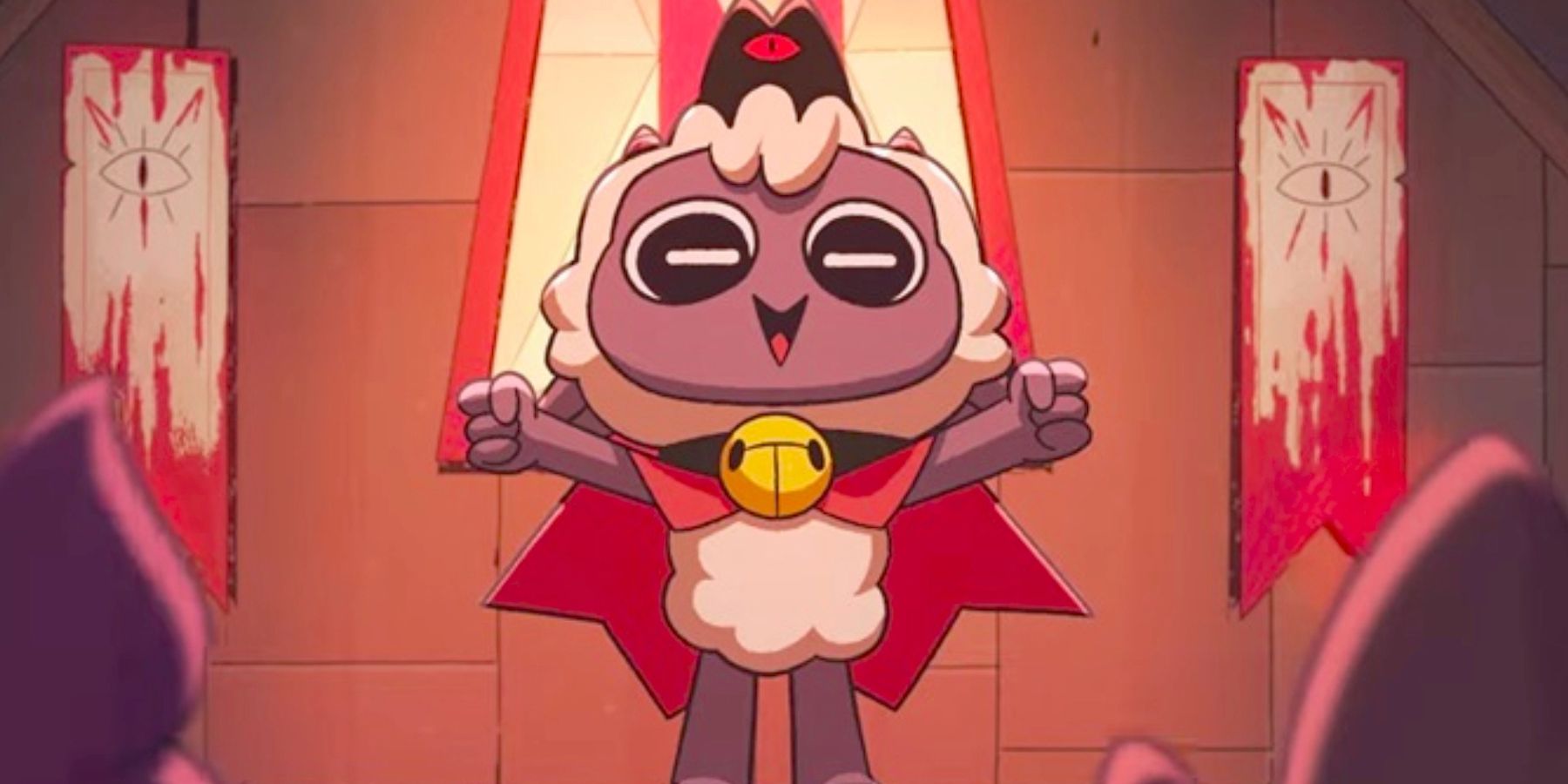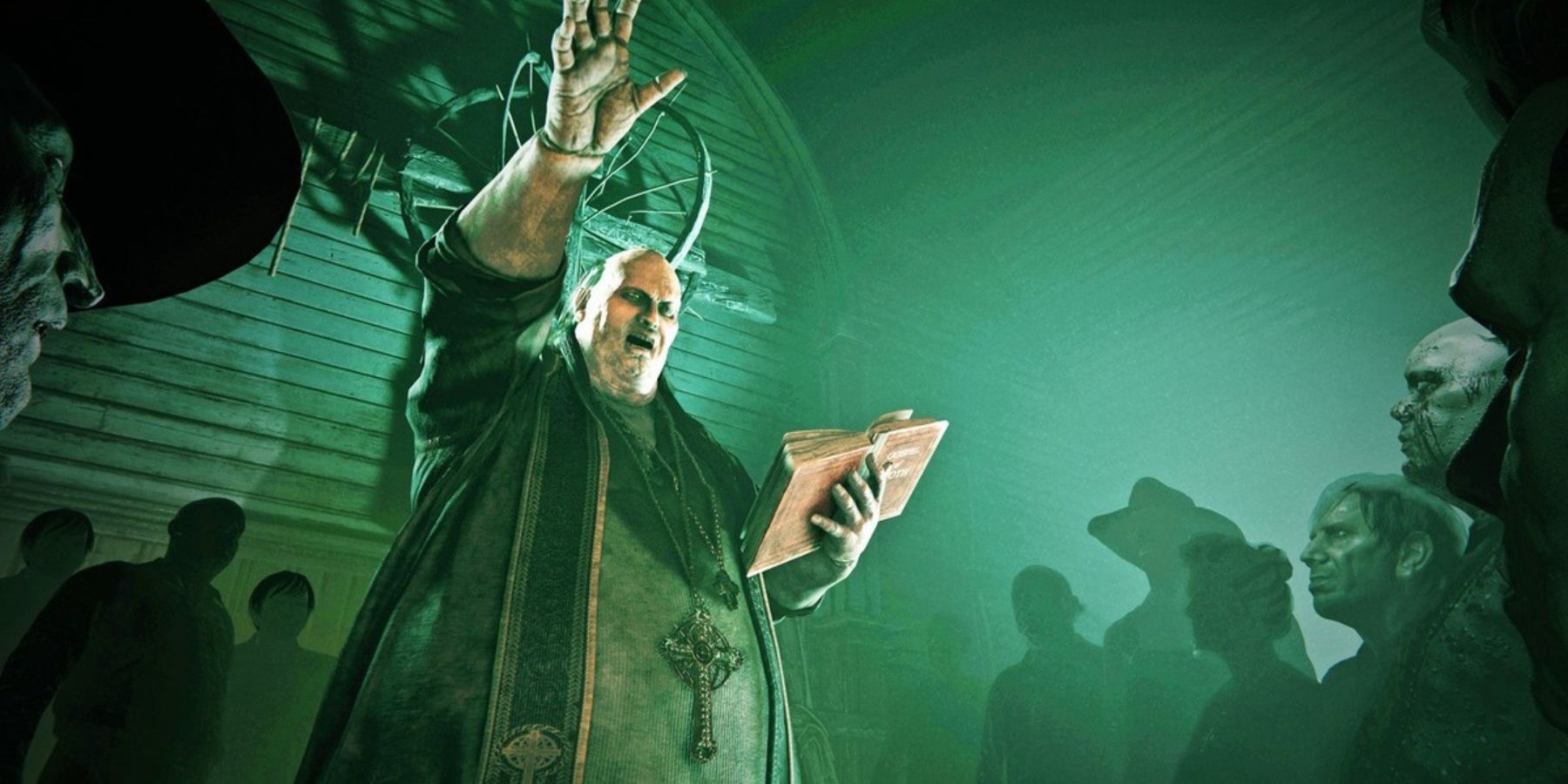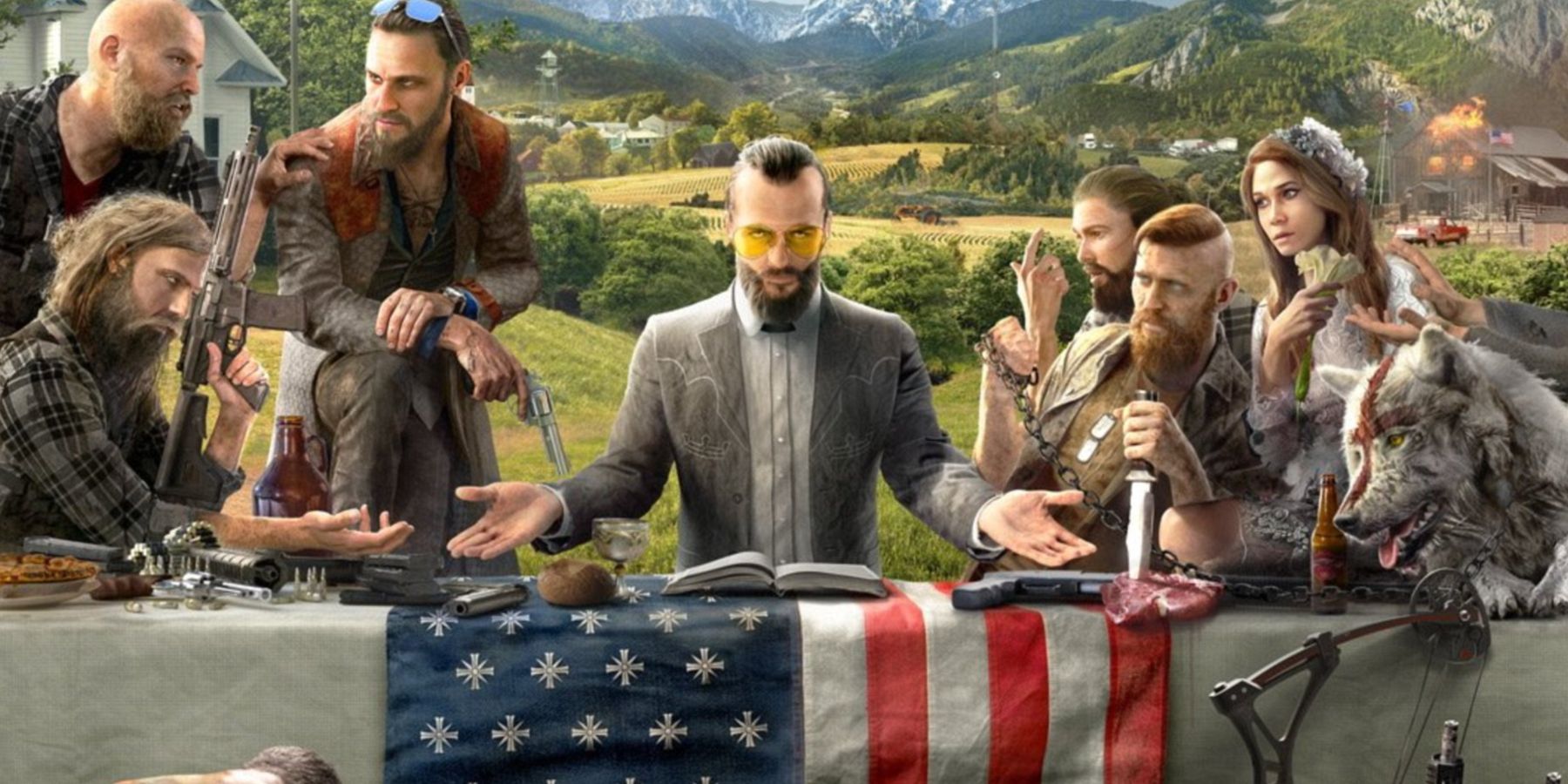Cult of the Lamb has been incredibly popular since its release for its dark but cute aesthetic, addicting gameplay, and creative cult-based mechanics. However, it is far from the first game to explore cults. In fact, there are plenty of games that have players grapple with a cult in some way, such as Cultist Simulator, Underhand, The Shrouded Isle, Evil Cult, Heretic Operative, Enter the Gungeon, Civilization 6: Red Death, and Honey, I Joined a Cult.
That is just the tip of the iceberg too, as many games have worlds with cults in them such as Resident Evil, Fallout, Silent Hill, Night in the Woods, Tomb Raider, EarthBound, Dead Space, and BioShock. The types of cults range from religious to personality-driven as well as demonic or Lovecraftian. A veteran gamer knows their way around fictional cults, but some fans may wonder why cults in games are so widespread. There are a number of reasons that are possible, and there are actually many kinds of ways video games have explored cult stories.
Video Games' Relationship With Moral Panic
There is an elephant in the room when it comes to video games and their relationship with religion and morality. For a long time, video games have been portrayed as a corrupting influence, notably for youth. Many of the finger pointers in this scenario are strongly religious, seeing video games as sinful for their sometimes fantastical, violent, addicting, and sexual content. All of this has contributed to a deep cynicism towards religion in many video games, and in some gamers themselves.
It could be for this reason that video games began to explore cults as an avenue to critically think about and question what goes on behind those persuaded by moral panics or mob mentality. Video games offer a safe way to experience and interact with cults, which can be quite dangerous in real life. Much of the moral panic that gets targeted at video games is due to ignorance and fearmongering, which is very much emulated in the fictional cults in video games.
Even recent games like Cult of the Lamb have attracted the attention of moral panic with a lot of negative reviews having a religious spin to them. This is part of what draws more people to games like Cult of the Lamb, though, because it ironically increases the fascination with the game as a piece of counter culture.
The Different Ways Video Games Engage With Cult Stories
While most cults are associated negatively in video games, the developers often examine why cults happen. Gamers are put in a unique position where they can see how a cult can feel like family. Plotlines are often set up with a protagonist that loses everything, which is precisely when cults try to recruit someone. While many video game cults are fantastical, some are more grounded, such as in Far Cry 5, whose villains are a cult of militant Christians.
BioShock Infinite's main villain is the founder of an ultra-nationalist cult, and he was loosely based on Ernst Rudin, a real Nazi, and Anthony Comstock, a Christian moralist that led major censorship campaigns. The big twist is quite revealing about how one can connect to a cult as well. The twist is that BioShock Infinite's main character Booker DeWitt is actually the villain, but the villain is from an alternate reality where he was baptized and believed to be absolved from his sins while Booker ran away, believing the baptism would not pardon his sins. That one small detail changed everything, creating two opposing versions of a man.
One game known for many cults is Fallout, from the Treeminders to the Church of the Children of Atom. While most of the cult activity in Fallout is goofy, fun, and explored in side-content, there is a taste of reality all over that series and its factions. There are so many cults because the nuclear war left a somewhat blank slate of very desperate people. There is a sadness about the cults in that they want answers in a world with gives none.
These examples that hit closer to home are fascinating, and are reflective of the times developers and gamers are living in. Today, there are plenty of cults ranging from religious to philosophical to political, and some find homes online. While Cult of the Lamb is more recent, it takes a far more fantastical approach to cults. There's little that connects the real world to the cult in the Cult of the Lamb, and that may partly be why it is so popular. A lot of gamers usually play games to escape reality, and not always to critically engage with it like some other games do with their narratives. Regardless, it's clear that cults have a broad but detailed history in the game industry.
Cult of the Lamb is available on PC, PS4, PS5, Switch, Xbox One, and Xbox Series X/S.



